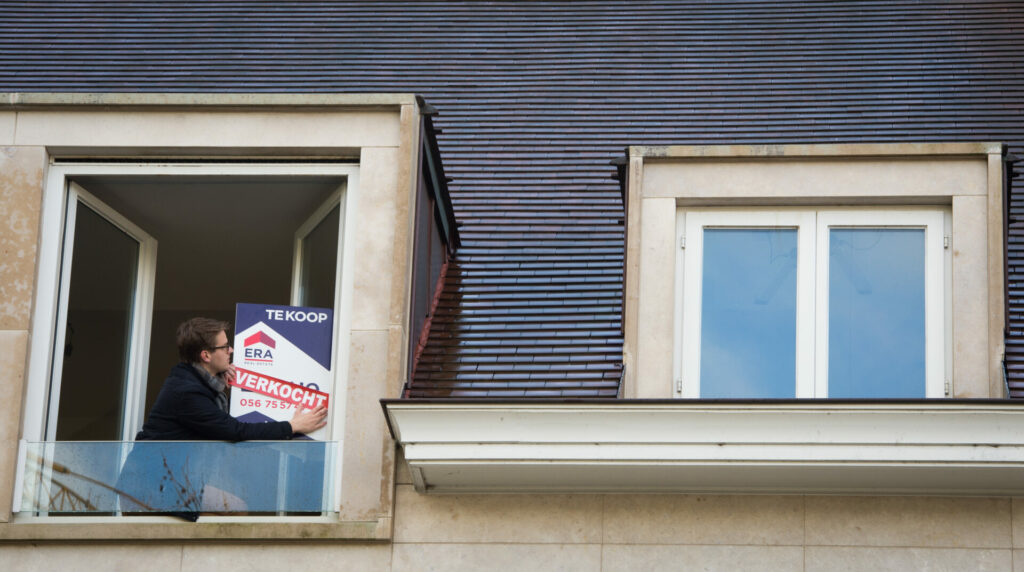While the property purchasing power of an average Belgian household has dropped slightly, it is still almost more than double that of a person living in Brussels.
The price index published on Tuesday by Immoweb showed that an average family in Belgium can buy a house of 103m2, down by 3% compared to the start of the year when it rose to 106m2 as a result of wage indexation. The recent drop can be explained by a combination of higher interest rates and rising property prices.
Overall, property prices have risen by 1.7% in the last three months, with the average price in Belgium currently standing at €2,288/m2. While the price rises are similar in Flanders (+1.9%) and Wallonia (+1.7%), the prices per square metre differ greatly, costing €2,419/m2 and €1,720/m2 respectively.
In contrast, property price increases over the past three months have been more moderate in Brussels (0.9%), but it remains the most expensive place to live, as the price per square metre is much higher (€3,327/m2).
As a result, an average household in Brussels can only buy an average of 56m2. In Wallonia, where real estate is more affordable, this figure is as high as 137m2, followed by 99m2 in Flanders. This purchasing power is based on the potential of a household with two adults and a median income to buy a property including all the necessary fees.
Urban trends
Immoweb noted that this is in line with a trend taking place in other major cities, where prices have risen only very slightly this year, while increases in the associated provinces have been much more pronounced.
For example, the cities of Mons and Namur in Wallonia have seen prices fall by -2.5% and -3.8% respectively in the first six months of this year, while prices in the provinces of Hainaut and Namur, where the cities are located, prices increased by 3% and 1.4%.
Related News
- Committee approves doubling of first home buyer's tax allowance
- Selling sunset: 25 Belgians per day bought property abroad last year
The same trend was reported in Flanders, where Ghent saw the smallest price increase (+1.4%), while the province of East Flanders saw a 4.1% rise. The exception to the rule is Antwerp (+2.7%), where prices rose by more than the province (+2.2%).
Immoweb warned that the urban housing market is under pressure due to rising interest rates and credit restrictions. Brussels in particular is more sensitive to this as it is the most expensive region, and banks therefore tend to favour lending with a safer borrower profile.

